#food industry software
Explore tagged Tumblr posts
Text
Why Food and Beverage Manufacturers Need to Integrate with Smart Systems?
The food and beverage manufacturing industry is going through a transformation, due to the integration of technology and automation. This shift not changes how things are done but also brings improvements in efficiency, quality and safety. It benefits both producers and consumers alike. Let’s explore some of the advancements in technology and automation such as twins, meticulous tracking systems, robotics and automation as well as artificial intelligence and machine learning integration.
The world of food and beverage manufacturing is experiencing a change as it embraces the age. Recent times have witnessed a shift towards technology and automation leading to the emergence of factories and sparking discussions about digital transformation. The potential lies in achieving efficiency levels, improved quality control measures and enhanced safety standards within the industry – all of which will have outcomes for consumers, manufacturers and the communities they serve.

By exploring concepts like transformation and examining the landscape of manufacturing, the goal is to provide valuable insights into how Smart Factories are poised to revolutionize the food and beverage industry.
Digital Transformation in the Food and Beverage Manufacturing Industry
One of the drivers behind the digital transformation in the food and beverage manufacturing industry is the pressing need for increased efficiency and productivity.
To improve efficiency, reduce costs and enhance Overall Equipment Effectiveness (OEE) as well as production outputs, food and beverage manufacturers are constantly seeking ways to optimize their processes. The integration of technologies such as Artificial Intelligence (AI) machine learning and robotics offers a solution to achieve these goals. For example, by leveraging AI and machine learning algorithms, manufacturers can quickly analyze volumes of data with accuracy, enabling real time quality decision making. Additionally, robotics plays a role by handling repetitive tasks that would otherwise require human effort. This allows human workers to focus their energy on innovative assignments.
Moreover, there is an increasing attention on sustainability which puts pressure on enterprises to reevaluate their practices and explore environmentally friendly approaches.
In this context, technology emerges as a force. By combining creativity with capabilities, businesses have an opportunity to embrace sustainability.
To give an example, AI and machine learning can be used to optimize supply chains reducing waste and increasing efficiency. The shift towards factories is not about technology; it also has cultural and environmental implications.
Smart Manufacturing Trends in Food and Beverage Industry
The food and beverage industry is currently experiencing changes in manufacturing. These include
Tracking the journey of products from farm to table ensuring transparency.
Tracing products from their source in the field to their delivery point.
Implementing factories that use robots for efficient processes.
Using laser guided vehicles along with IoT for connectivity.
While these trends offer potential, it is important for food and beverage manufacturers to approach them cautiously.
To fully leverage the advantages of manufacturing, companies need to integrate this technology into their core business systems.
Here are three important factors to consider when embracing manufacturing in the food and beverage industry:
Mobile Barcoding for Smooth Connectivity: Embrace the use of mobile barcoding to ensure inventory updates are in time. This enables traceability paths that instantly update an ERP system. By integrating this technology, companies can quickly adjust production based on demand and shortages maintaining up to date records and enhancing flexibility.
Prioritize Traceability: Traceability is a benefit of manufacturing especially for food producers. It allows organizations to respond promptly and accurately during product recalls or safety concerns. With mobile inventory tracking, all products can be meticulously recorded, making it easier to identify contaminated inventory. Without integration, recalls may involve batches, negatively impacting productivity and profitability. Traceability also improves field mobility by providing offline solutions that keep workers connected in remote areas ensuring no transactions are lost.
Embrace Operational Agility: The current business landscape requires adaptability for success. A strong supply chain strategy combined with inventory solutions and food and beverage software provides real time insights, throughout the warehouse and delivery process.
Manufacturers have the ability to quickly adapt their production processes in response to changes in demand, unexpected shortages and unforeseen interruptions. For example, a company specializing in consumer goods packaging successfully managed an increase in production during the pandemic by utilizing supply chain software and food and beverage software. This allowed them to promptly reassign tasks and meet the rising demand.

Why is the Smart Factory Manufacturing Operations Management (MOM) system considered a smart solution for the food and beverage manufacturing industry?
Think of the Smart Factory MOM system as an intelligent assistant specifically designed for food and beverage manufacturing. It's like having a trusted companion that ensures everything runs seamlessly.
This system oversees every stage of food production until it reaches its to-be consumed state. It diligently monitors each step ensuring that everything proceeds smoothly.
In case any issue arises, such as machinery breakdown, the MOM system quickly alerts someone so that they can address it before it escalates into a problem. It's akin to having a superhero who detects trouble and calls for assistance!
However, the capabilities of the MOM system extend beyond problem solving; it also excels at predicting issues. It can identify when machines may require maintenance even before they malfunction or break down.
You know what's really cool? The Smart Factory MOM has this ability to anticipate when there will be a demand, for food and prepare accordingly. But here's the thing it's not about machines. Smart Factory also values the input of its workers.
They can freely share their ideas and this fantastic MOM system helps foster collaboration among everyone. In the world of food and drink where precision is the key, the Smart Factory MOM acts like a sidekick. It keeps an eye over operations, resolves any issues that arise, and even seems to predict what will happen next. It's like having a friend who ensures that everything tastes delicious and runs smoothly according to the schedule.
0 notes
Text
Exploring Career and Job Opportunities in Davao City Philippines
Davao City, recognized as one of the Philippines' most progressive cities, continues to experience remarkable economic growth, creating a vibrant job market that attracts professionals from across the country. The city's diverse economy offers numerous employment opportunities, from entry-level positions to executive roles, making it an attractive destination for job seekers at all career stages.
The Business Process Outsourcing (BPO) sector stands as one of the largest employers in Davao City, providing thousands of jobs across various specializations. Companies in this sector actively recruit customer service representatives, technical support specialists, and quality assurance analysts, offering competitive salaries and comprehensive benefits packages. The industry's continued expansion has created numerous opportunities for career advancement, with many organizations promoting from within and providing extensive training programs.
Part-time employment opportunities have also flourished in Davao City, catering to students, professionals seeking additional income, and individuals preferring flexible work arrangements. The retail sector, food service industry, and education field offer numerous part-time positions with varying schedules and responsibilities. These roles often provide valuable work experience and can serve as stepping stones to full-time careers.
The Information Technology sector in Davao has seen significant growth, with many companies seeking software developers, web designers, and IT support specialists. This growth has been fueled by the city's improving technological infrastructure and the increasing number of tech-focused businesses establishing operations in the region. Tech professionals can find opportunities in both established companies and startups, with many positions offering competitive compensation and the possibility of remote work arrangements.
Davao's hospitality and tourism industry continues to expand, creating jobs in hotels, restaurants, travel agencies, and tour operations. The sector offers positions ranging from entry-level service roles to management positions, with many employers providing training and development opportunities. The industry's growth has also sparked demand for professionals in events management and tourism marketing.
The education sector presents numerous opportunities for both full-time and part-time employment. Educational institutions regularly seek teachers, tutors, and administrative staff. The rise of online learning has created additional opportunities for English language teachers and academic consultants who can work flexible hours from home or teaching centers.
Job hiring in Davao, the digital economy has opened new avenues for employment. E-commerce specialists, digital content creators, and social media managers are in high demand as businesses increasingly establish their online presence. These positions often offer the flexibility of remote work while providing competitive compensation packages.
Professional development resources are readily available in Davao City, with numerous institutions offering skills training programs and industry certifications. Job seekers can access career counseling services, resume writing assistance, and interview coaching through various employment support organizations. These resources prove invaluable in helping candidates prepare for and secure desired positions.
The financial services sector in Davao has also experienced substantial growth, creating opportunities for banking professionals, insurance specialists, and investment consultants. These positions typically offer attractive compensation packages, including performance bonuses and health benefits, making them highly sought after by experienced professionals.
Davao's agricultural sector continues to evolve, combining traditional farming with modern agribusiness practices. This has created opportunities for agricultural technologists, food processing specialists, and supply chain professionals. The sector offers both technical and management positions, with many companies providing specialized training and development programs.
For those entering Davao's job market, proper preparation is essential. Successful job seekers typically maintain updated resumes, prepare comprehensive portfolios, and stay informed about industry developments. Professional networking, both online and offline, plays a crucial role in discovering opportunities and advancing careers in the city.
The future of Davao's job market looks promising, with emerging industries creating new employment opportunities. The city's commitment to economic development, coupled with its strategic location and robust infrastructure, continues to attract businesses and investors, ensuring a steady stream of job opportunities for qualified candidates.
Whether seeking full-time employment or part-time job in Davao City offers a diverse range of opportunities across multiple industries. Success in this dynamic job market often comes to those who combine proper preparation with continuous skill development and effective networking. As the city continues to grow and evolve, its job market remains a beacon of opportunity for professionals seeking to build meaningful careers in Mindanao's premier business hub.
#Davao City#recognized as one of the Philippines' most progressive cities#continues to experience remarkable economic growth#creating a vibrant job market that attracts professionals from across the country. The city's diverse economy offers numerous employment op#from entry-level positions to executive roles#making it an attractive destination for job seekers at all career stages.#The Business Process Outsourcing (BPO) sector stands as one of the largest employers in Davao City#providing thousands of jobs across various specializations. Companies in this sector actively recruit customer service representatives#technical support specialists#and quality assurance analysts#offering competitive salaries and comprehensive benefits packages. The industry's continued expansion has created numerous opportunities fo#with many organizations promoting from within and providing extensive training programs.#Part-time employment opportunities have also flourished in Davao City#catering to students#professionals seeking additional income#and individuals preferring flexible work arrangements. The retail sector#food service industry#and education field offer numerous part-time positions with varying schedules and responsibilities. These roles often provide valuable work#The Information Technology sector in Davao has seen significant growth#with many companies seeking software developers#web designers#and IT support specialists. This growth has been fueled by the city's improving technological infrastructure and the increasing number of t#with many positions offering competitive compensation and the possibility of remote work arrangements.#Davao's hospitality and tourism industry continues to expand#creating jobs in hotels#restaurants#travel agencies#and tour operations. The sector offers positions ranging from entry-level service roles to management positions#with many employers providing training and development opportunities. The industry's growth has also sparked demand for professionals in ev#The education sector presents numerous opportunities for both full-time and part-time employment. Educational institutions regularly seek t
0 notes
Text
ERP Software for Meat Processors: A Comprehensive Guide for UK Manufacturer
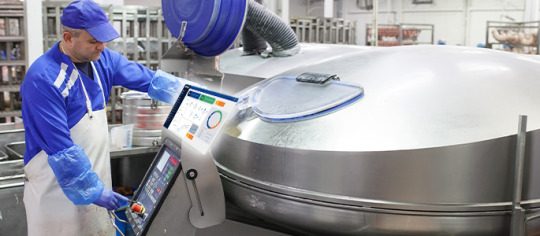
Meat manufacturing is one of the most complex industries in the food sector not just in the United Kingdom (UK) but globally. If meat is not handled properly, there is a higher risk of infection and diseases – making this industry one of the most sensitive and challenging segments amongst the other food verticals.
Also, there are hiccups related to catch weight calculations, poultry management (in terms of feeding, hygiene, and wellness), perishability, and the complexities of assigning grades and cuts to meat products. Adding more are the health issues related to meat consumption, that often stem from the living conditions of the animals, and any negligence in the supply chain or storage can lead to contamination.
This poses serious risks to consumer health and often raises red flags among regulators. Consequently, meat manufacturers are under constant pressure to comply with industry standards, while navigating intensifying competition, shrinking profit margins, delivering high-quality products, and managing the entire supply chain. Not to forget, today's consumers are increasingly health-conscious and demand products that meet strict nutritional and safety standards. This puts additional pressure on manufacturers, who not only have to meet these expectations but also face the challenge of accurately conveying all the necessary information on labels and packaging. But wait, there are more challenges in the basket, such as:
Adhering to cGMP (current Good Manufacturing Practices) requirements
Managing raw materials and their shelf life
Ensuring worker safety and hygiene
Managing fluctuating demand for products like beef and pork
Ensuring traceability throughout the production cycle
To effectively tackle these challenges, UK meat manufacturers are increasingly adopting ERP Software for Meat Processors. Meat Processing ERP software can streamline operations, ensure regulatory compliance, and uphold product quality across the production process.
Why Meat Processing ERP is the pressing need for UK Meat Manufacturers
A generic ERP system may fall short when it comes to meeting the unique demands of meat processors but ERP software for meat processors fit best, offering unique capabilities such as:
Inventory Management: Efficiently tracks raw materials, ingredients, co-products, and by-products. It also enables the better organization of inventory using various classification methods such as LIFO, FIFO, and FEFO while maintaining optimal stock levels to prevent stock-outs or overstocking.
Traceability: Monitors the entire journey of a product, from raw material intake to finished goods, ensuring complete traceability. It also helps meet product recall requirements with ease.
Yield and Cost Management: Accurately measures yield, scales production, and tracks costs, enabling manufacturers to optimize profitability by aligning production with demand.
Catch-Weight Functionality: Handles variable weights, ensuring that meat is priced accurately based on its exact weight, providing transparency and accuracy in pricing.
Quality Control: Implements comprehensive quality checks to meet industry standards like HACCP and cGMP. It also enables detailed sample inspections to ensure product quality.
Production: Streamlines the entire production process by optimizing production schedules, reducing downtime, helping monitor work-in-progress (WIP) inventory, tracking production output, and ensuring timely order fulfillment.
Expiration Tracking: Reduces waste by closely monitoring expiration dates and providing timely alerts when products are approaching their expiry.
Regulatory Compliance: Ensures compliance with industry-specific standards, including the Products Containing Meat (England) Regulations 2014, Food Information Regulations 2014, and the European Food Information to Consumers Regulation No 1169/2011 (FIC), helping avoid legal risks.
One ERP solution that offers all above stated and more capabilities to the meat industry is BatchMaster ERP. More than just software, it’s a strategic competitive advantage tailored specifically for the unique needs of UK meat processors. It enables them to digitize and optimize their entire supply chain cycle while offering all the capabilities essential to meet Formulation, R&D, Processing, Quality, Compliance, Finance & Accounting, Inventory management, Planning and such needs.
Benefits of Meat ERP Software
Adopting a Meat ERP software offers several benefits to meat manufacturers, including:
Enhanced accountability, predictability, and scalability along with consistent and assured quality products.
Tight control over the costs and increased profit margin.
Unparalleled command over the business processes such as inventory management, production & distribution.
Improved efficiency as well as bottom line.
Consistency in operations.
Informed decision making.
Ability to demonstrate regulatory compliance.
Improved customer service that results in greater customer satisfaction.
Competitive advantage.
Discover how a ERP for food like BatchMaster can help you stay ahead of the curve, tackle industry challenges, and grow your business confidently. Click here to transform your operations today!
0 notes
Text
ERP for Manufacturing in the Food Industry
In the highly competitive food manufacturing sector, efficiency, quality, and regulatory compliance are critical to success. Managing these aspects can be challenging, given the complexities of sourcing, production, inventory, and distribution. This is where Enterprise Resource Planning (ERP) software plays a transformative role, offering a streamlined approach to managing operations across the entire value chain.
The Role of ERP in Food Manufacturing
ERP software serves as a central hub that integrates all business functions, from procurement to production and distribution. In the food industry, where factors like perishability, food safety regulations, and fluctuating market demand add extra layers of complexity, ERP systems provide the necessary tools to navigate these challenges effectively.
By consolidating operations into a single platform, ERP software allows manufacturers to manage processes with greater accuracy, speed, and reliability. From tracking raw materials to monitoring production and ensuring timely delivery, ERP systems enhance efficiency while minimizing waste and errors.
Addressing Industry-Specific Challenges
Food manufacturers face unique challenges, such as maintaining product quality, adhering to stringent safety standards, and managing inventory efficiently. ERP software is specifically designed to address these needs.
Traceability is one of the most critical aspects of food manufacturing. With ERP, businesses can track every ingredient and product batch from origin to delivery. This not only ensures compliance with safety regulations but also facilitates quick responses in case of product recalls or quality concerns.
Another key feature is regulatory compliance management. Food manufacturers must adhere to various standards, including HACCP, FDA, and FSSAI guidelines. ERP systems simplify this by automating documentation, tracking safety measures, and generating reports as required.
Additionally, inventory management is streamlined with real-time tracking and monitoring. This is especially important in the food industry, where perishable goods require careful handling to minimize waste and reduce costs. ERP solutions for the food industry help businesses maintain optimal inventory levels and avoid overstocking or shortages.
Benefits of ERP for Food Manufacturers
Implementing ERP software in manufacturing brings a host of advantages. It improves operational efficiency by automating repetitive tasks and reducing manual errors. The system also provides real-time insights into production, inventory, and costs, enabling manufacturers to make informed decisions quickly.
Moreover, ERP software enhances customer satisfaction by ensuring timely delivery and consistent product quality. Its ability to adapt to changing market demands gives businesses the flexibility to respond to new trends and consumer preferences with ease.
ERP software is no longer a luxury for food manufacturers—it’s a necessity. By integrating and automating critical processes, ERP systems empower businesses to stay competitive, improve efficiency, and ensure compliance in a rapidly evolving industry.
For tailored ERP solutions designed to meet the unique needs of food manufacturing, you can explore more on ERP for Food and Beverage Industry here: https://www.lighthouseindia.com/Food-Beverages-erp.html.
#erp#erp software#erp system#techsolutions#erp implementation#erp services#erp solutions provider#innovation#technology#industry solutions#manufacturing#erp for manufacturing#erp for food agro and dairy#food erp#agro erp#dairy erp
0 notes
Text
Streamlining Production with Manufacturing Traceability Software
Manufacturing traceability software systems provide real-time tracking and management of products throughout the entire production process. These systems capture detailed data from raw materials to finished goods, enabling manufacturers to monitor quality, ensure compliance, and quickly identify potential issues. By collecting key production information, such as batch numbers, timestamps, and machine performance, traceability software enhances operational efficiency and reduces errors. It also helps in meeting industry regulations, improving product recalls, and fostering greater transparency for customers. With these systems, manufacturers can achieve a more organized, data-driven, and responsive production environment.
#Manufacturing Traceability Software System#Traceability Software Food Safety#Food Traceability Solutions#Traceability Software Food Industry
0 notes
Text
SAP Solutions: Transforming the Food and Beverage Industry
The food and beverage industry faces unique challenges, such as supply chain complexities, strict regulatory requirements, fluctuating consumer preferences, and sustainability demands. SAP solutions are pivotal in addressing these challenges, enabling businesses to achieve operational efficiency, enhance customer satisfaction, and foster innovation.
#sap in food industry#sap business one for food industry#sap for food industry#sap software for food industry
0 notes
Text

ERP Beverage Industry
Address food and beverage service gaps seamlessly with Sage X3 food and beverage ERP software and overcome industry challenges.
#greytrix africa ltd#erp software#sage erp#sage x3#food and beverage#food#food and beverage industry
0 notes
Text
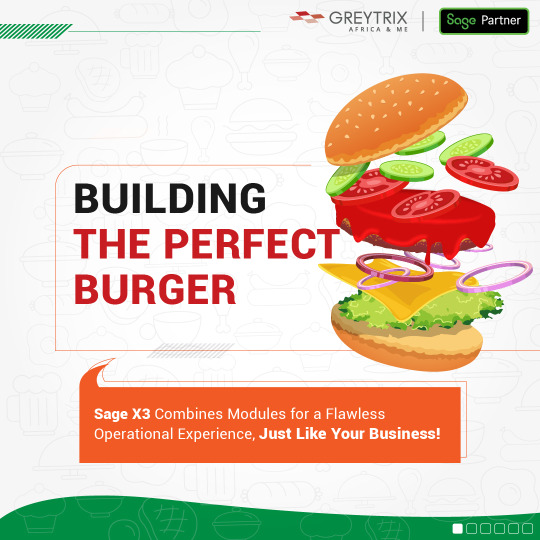

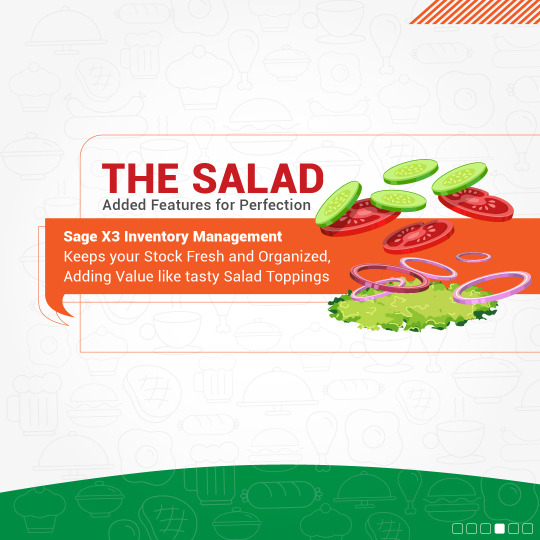
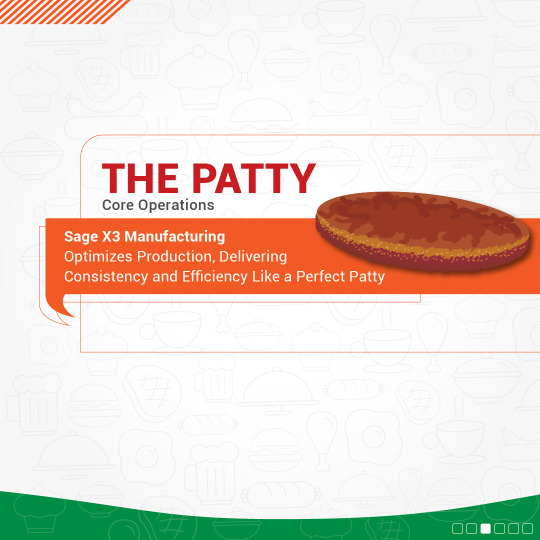


ERP For Food And Beverage Industry
Sage X3 ERP is the best food manufacturing software. It offers recipe- formula-based manufacturing designs for businesses in Middle East.
0 notes
Text
Discover how CEOs and managers use AI to streamline processes, reduce costs, and drive growth. Learn how AI agents enhance efficiency, improve decision-making, and elevate customer experiences, making them essential for success in today's fast-paced market.
#martech companies#custom software development for food and beverage industry#martech solutions#custom javascript development services#flutter mobile app development
0 notes
Text
Comprehensive Traceability Software for the Food Industry
Traceability Software for the food industry offers a robust solution for tracking and managing the journey of food products from farm to table. This software provides end-to-end visibility, enabling businesses to monitor the movement, origin, and handling of ingredients throughout the supply chain. It ensures compliance with regulatory standards, enhances food safety, and allows for rapid response in case of recalls or quality issues. By maintaining detailed records and real-time data, traceability software helps reduce risks, improve transparency, and streamline operations, ultimately safeguarding consumer trust and optimizing supply chain efficiency.
#Traceability Software for the Food Industry#traceability software#food traceability#traceability system
0 notes
Text
Overview of Small Molecule API Development | Chemxpert Database
After successful preclinical testing, the compound enters the clinical trial phase. This involves rigorous testing on human subjects to determine the safety and efficacy of the API. Clinical trials are conducted in multiple phases, each with increasing numbers of participants and more stringent testing protocols. API pharmaceutical companies play a crucial role in overseeing these trials to ensure that they comply with regulatory standards.
#pharmaceutical industry overview#pharma excipients#food drug administration#api manufacturers in India#pharmaceutical software companies
1 note
·
View note
Text
Revolutionizing Food and Beverage Industry Standards with ERP Deployment
In the fast-paced food and beverage industry, managing supply chains, ensuring food safety, and maintaining regulatory compliance are essential. Implementing an ERP system can transform these operations. ERP enhances inventory management, food safety, compliance, and streamlines processes, aiding in better decision-making and significant cost savings. It raises industry standards through quality control, regulatory compliance, efficient supply chain management, cost control, and improved customer satisfaction. While the implementation process demands meticulous planning, choosing the right ERP system and involving key stakeholders are critical for success. Ultimately, an ERP system provides long-term benefits, making it a valuable investment for food and beverage companies.
#erp for food and beverage#food erp software#beverage erp#erp food industry#erp for food and beverage industry
0 notes
Text

Discover the advantages of SAP Business One, the top ERP choice in India. Benefit from its affordability, comprehensive support for decision-making and inventory management, and tailored solutions that meet your business's unique needs.
#erp#erp for manufacturing industry#sap business one partner in india#sap erp for small businesses#sap business one#best erp software company in india#sap erp for food & beverages#sapbusinessone
0 notes
Text
SAP Business One Gold Partner Noida |Delhi |Gurgaon| Ghaziabad India
Elevate your interior decor and furniture manufacturing business with SAP Business One Take control of your success
Trusted SAP Business One Gold Partner with 500+ Successful Implementations including Kanpur, Jaipur, Lucknow, Ludhiana, Manesar, Indore, Pune, Mumbai, Kolkata, Faridabad, Sonipat, Raipur, Ambala Etc.
#SAP Business One#SAP B1#SAP Business One Partner in India#ERP for Manufacturing Industry#SAP ERP for Small Businesses#SAP ERP for Food & Beverages#Best ERP software company in India#ERP Solutions Provider in India#Best ERP Software in India
0 notes
Text
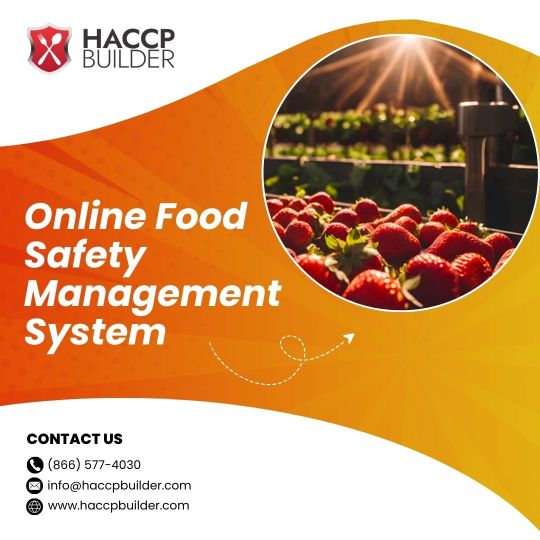
HACCP Builder offers an online Food Safety Management System designed to simplify compliance with food safety regulations and HACCP guidelines.
#online Food Safety Management System#best food traceability software#haccp food management system#haccp based food safety program#haccp plan for food products#haccp plan for food industry
0 notes
Text
The Importance of Traceability Software in the Food Industry: Enhancing Safety, Compliance, and Efficiency
In today's food industry, the ability to track and trace products from farm to table is more crucial than ever. With increasing concerns about food safety, quality, and transparency, manufacturers must ensure that their operations are fully compliant with regulations and meet consumer demands for transparency. Traceability software in the food industry has emerged as an essential tool, helping businesses monitor and control every step of the production and supply chain process. By implementing a food traceability system, manufacturers can enhance food safety, streamline operations, and improve consumer trust.
This article explores the significance of traceability software in food manufacturing, its key features, benefits, and how it plays a vital role in ensuring the integrity of food products.
What is Traceability Software in the Food Industry?
Traceability software in the food industry refers to systems that enable food manufacturers to track and monitor the journey of food products and their ingredients across the supply chain. This software records and stores data about each step in the production process, from raw material sourcing to finished goods distribution. The ability to track the source, movement, and handling of food products provides manufacturers with valuable insights, ensuring that products are safe, compliant with regulations, and meet consumer expectations.

Manufacturing traceability is a critical aspect of food traceability, as it enables companies to maintain a comprehensive record of production activities, allowing for quick identification and resolution of any potential issues that may arise.
How Does a Food Traceability System Work?
A food traceability system functions by collecting data at various stages of food production and processing. Key elements of the system include:
Barcode and RFID Technology
By attaching barcodes or RFID tags to raw materials, ingredients, or finished products, the system captures real-time data on the product’s location and status as it moves through the supply chain.
Batch and Lot Number Tracking
Products are assigned unique batch or lot numbers to facilitate tracking from the source to the end consumer. If an issue arises, manufacturers can quickly trace the affected batch and identify its origin, distribution, and customer base.
Data Integration
Traceability software integrates data across various departments, including purchasing, inventory management, production, and shipping, providing a unified view of the entire food supply chain.
Real-Time Monitoring
The system allows for real-time monitoring of product movement and conditions, ensuring transparency and enabling manufacturers to respond swiftly to any potential issues, such as contamination or product recalls.
Key Features of Food Traceability Software
Comprehensive Data Recording and Reporting: Food traceability software collects data at every stage of production and stores it in a centralized database. This includes details on sourcing, processing, packaging, and distribution. The software also generates reports that can be used for audits, regulatory compliance, and analysis.
Compliance Management: Compliance with food safety regulations is a significant aspect of traceability. Food traceability software is designed to help manufacturers meet the requirements of various regulatory bodies, such as the U.S. Food and Drug Administration (FDA) and the European Food Safety Authority (EFSA). These regulations often require businesses to demonstrate the ability to trace food products and their ingredients in the event of contamination or recall.
Real-Time Data Access and Alerts: One of the key advantages of traceability software in food manufacturing is its ability to provide real-time access to critical data. Manufacturers and managers can access up-to-date information on product movements, processing conditions, and potential risks. Additionally, the system can send automated alerts if any issues arise, allowing for quick intervention.
Seamless Integration: Food traceability software often integrates with other business systems, such as enterprise resource planning (ERP), inventory management, and quality control systems. This allows for a streamlined approach to managing food safety and quality processes, reducing the likelihood of errors and improving overall efficiency.
The Benefits of Food Traceability Software
1. Enhanced Food Safety and Quality Control
The most significant benefit of using traceability software in the food industry is improved food safety. By providing manufacturers with the ability to track every aspect of food production, from sourcing raw materials to delivering finished products, the system helps identify and resolve any issues that may compromise food safety. In the event of contamination or quality problems, the system enables manufacturers to pinpoint the exact source of the issue and quickly recall affected products, minimizing harm to consumers and brand reputation.
2. Faster Response to Recalls
When contamination or safety issues arise, a fast and effective response is crucial. Food traceability systems enable manufacturers to quickly trace any affected product back to its origin, ensuring that only the contaminated batches are recalled and preventing unnecessary waste. This minimizes the impact of a recall on both the business and consumers, reducing liability and safeguarding public health.
3. Improved Transparency and Consumer Trust
With increasing consumer demand for transparency in food sourcing and production, traceability software helps food manufacturers meet these expectations. By making it possible to trace products from farm to table, manufacturers can provide consumers with detailed information about the origin, production, and handling of the food they purchase. This transparency fosters consumer trust and loyalty, as customers are more likely to purchase from brands that prioritize food safety and quality.
4. Regulatory Compliance
Food manufacturers are subject to stringent regulations governing food safety, labeling, and traceability. Food traceability software helps companies stay compliant with these regulations by ensuring that the necessary data is accurately recorded and easily accessible for audits or inspections. This reduces the risk of non-compliance penalties and allows manufacturers to avoid costly fines or legal issues.
5. Streamlined Operations and Cost Efficiency
By automating data collection and reporting, food traceability software helps streamline operations, improving overall efficiency. Manufacturers can identify inefficiencies in the production process and make data-driven decisions to optimize workflows. Additionally, by minimizing errors and reducing the likelihood of recalls or product rejections, food companies can save on operational costs and improve profitability.
Conclusion
In the modern food industry, traceability software is no longer a luxury—it's a necessity. As consumer expectations for food safety, quality, and transparency continue to rise, implementing a food traceability system has become essential for businesses aiming to stay competitive and compliant. From enhancing food safety and regulatory compliance to improving operational efficiency and consumer trust, the benefits of traceability software in food manufacturing are clear.
By adopting food traceability software, manufacturers can ensure that every product is tracked and monitored at every step of the supply chain, making it easier to manage risks, improve product quality, and respond quickly to potential issues. As the industry continues to evolve, investing in traceability software will help food manufacturers meet the challenges of the future while ensuring the safety and satisfaction of consumers.
#Traceability Software Food Industry#Food Traceability Solutions#Food Traceability System Software#Food Traceability Software#food traceability
0 notes